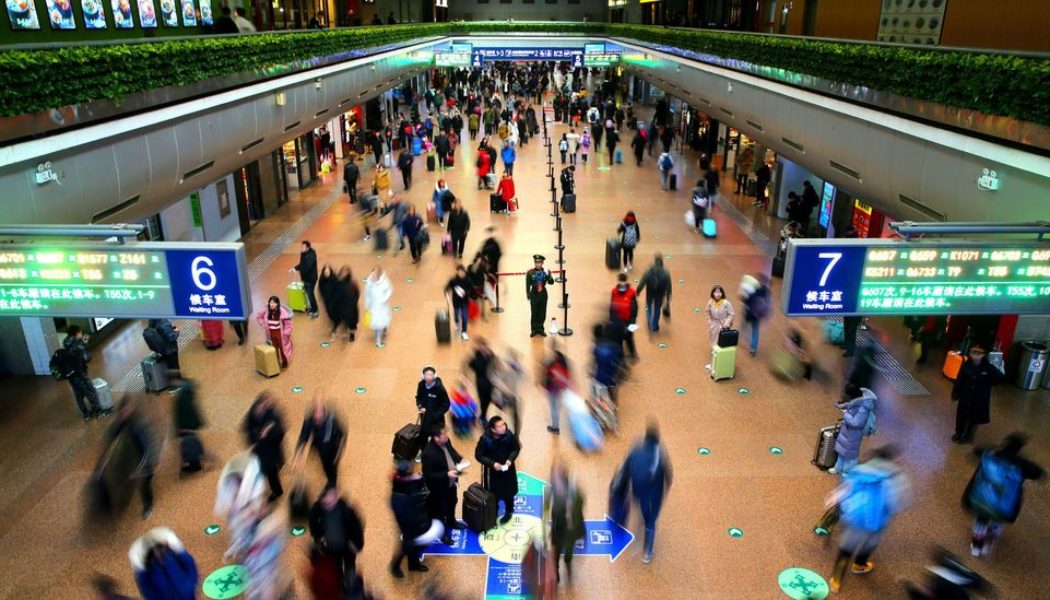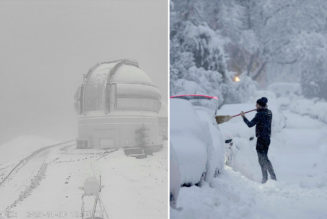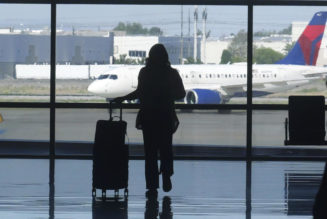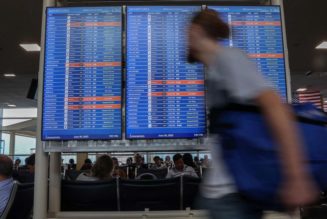For Lunar New Year on 10 February, Cassidy Yu has opted for a road trip with a friend instead of a family reunion. This won’t be her first time skipping the trek home.
“Heading home for the occasion doesn’t get me excited anymore,” says Yu, a 32-year-old marketing professional from Shenzhen, a city in southern China. As a child, she relished simple rituals of the Lunar New Year: home decorations, firecrackers and feast after feast. Not anymore. “With so many entertainment options available today, I’d rather travel and have a quieter holiday.”
Like Christmas, Lunar New Year is a time for family reunions. People traditionally gather for a big dinner on the night of the New Year’s Eve, followed by visits to relatives’ homes during the week-long holiday.
It sets off the world’s biggest human migration, as millions return to their home villages and cities, where a labyrinth of celebrations, rooted in centuries-old regional traditions, awaits. One tradition is known as Chunyun, a 40-day period when billions of trips take place. Some experts estimate the 2024 season will bring record amount of movement, spurred by the lifting of the Covid-19 restrictions of the past several years.
Yu is part of a growing number of young Chinese millennials who are making alternative plans and approaching the Spring Festival with a shrug. Changing family dynamics, new lifestyles and economic pressure have upended some holiday traditions – and many young Chinese are minting their own celebrations.
The ‘independent streak’
Numbering 400 million, Chinese millennials mostly came of age during China’s boom years of the 2000s. And this generation – many of whom are college educated and the only children in their family – doesn’t always hew to old playbooks as they forgo traditional values upheld by their parents. That can come to a head during the Spring Festival, as the Lunar New Year is often called in China.
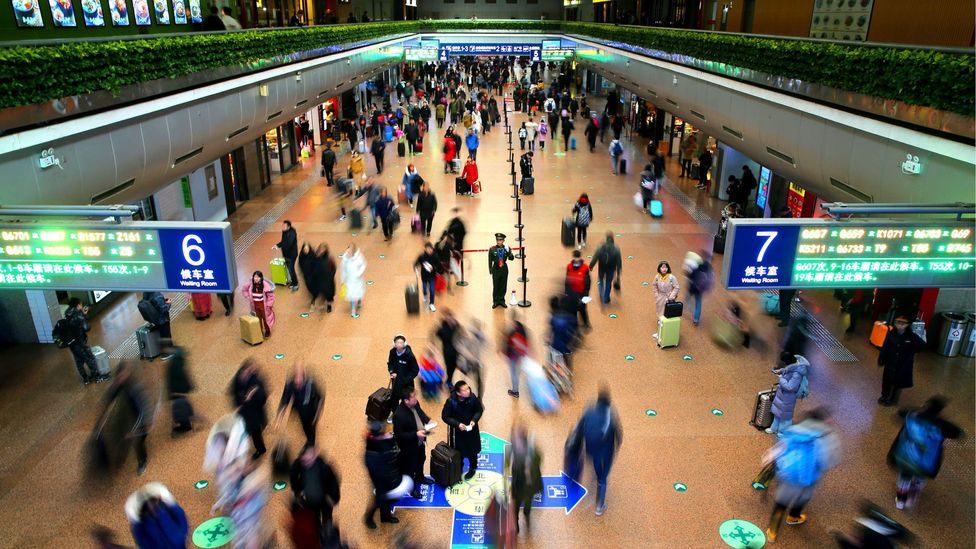
Lunar New Year sets off a mass migration across China as people gather with their families for the festivities (Credit: Alamy)
A result is some millennials view the festival as just an extended vacation that doesn’t have to involve family gatherings. On Mafengwo, a Chinese travel website, a user asked: is solo travel during the Spring Festival tantamount to being unfilial? Most respondents said no. The post garnered more than one-million views and more than 6,000 answers. “Travelling is more fun than feeling just bored at home during the Lunar New Year, isn’t it?” the user wrote after posing the question.
Millennials’ trepidation towards the festival partly stems from fraying familial ties, says Hu Xiaowu, an associate professor at Nanjing University in eastern China, who studies urban issues.
“The independent streak of young people as a result of urbanisation and social mobility has fractured family relations,” he says. “Traditional family ties in China de-emphasise personal boundaries, which can be manifested through excessive concern and overbearing behaviour from the elders. That’s partly why young people dread the Spring Festival.” The Chinese media has coined a term for this feeling of apprehension: kongguizu.
Many Chinese millennials, in pursuit of better opportunities, have left their hometowns for big cities. An individualistic lifestyle, coupled with the stress of living in big cities, often leave them with little time – or appetite – to talk to their families, says Hu. According to a survey Hu conducted in 2022, younger people between 18 and 30 years old interacted with relatives less frequently than their older peers. Most respondents born after 1990, the survey showed, only interacted with their relatives “occasionally”.
One reason Yu especially wants to avoid family and even neighbours this year is because she is single. Her family is always eager to play matchmaker, she says, and the prying can get particularly intense during the Spring Festival. No questions are too private. “They want to know what you do and how much you make. If you get married, they will ask when you plan to have babies,” she says. “Imagine being interrogated by a spy agency.”
‘No money’
A slowing economy isn’t helping. In recent years, companies have laid off workers and cut benefits. Even for those who are working, underemployment is widespread. Stocks have tumbled. And the housing market, to which nearly three-quarters of Chinese household wealth is tied, is in turmoil.
Bill Bishop, who writes the China-focused newsletter Sinocism, expects a mixed mood for the festival this year. “This is the first new year holiday since 2019 that doesn’t have Covid hanging over it,” he says. “On the other hand, how many people are going to be talking about how much money they have lost in the stock market or have lost their jobs or had salaries and benefits reduced, or know people who have?”
On Zhihu, a Quora-like Q&A platform in China, users have posted their reasons for not going home for the Lunar New Year in 2024. One wrote simply, “No money”.
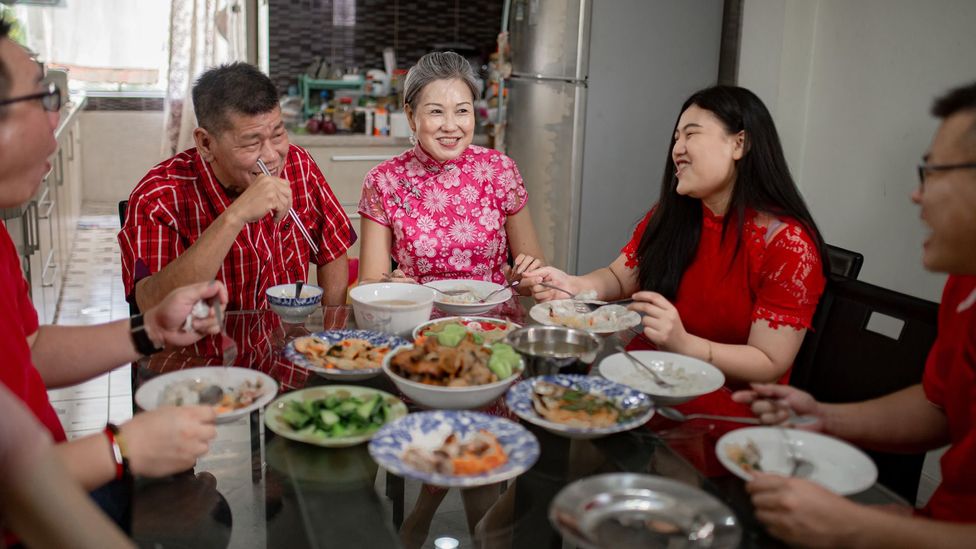
Not everyone avoids going home – but many have changed behaviours and attitudes when they do (Credit: Getty Images)
“For some people, the idea of setting aside 3,000 yuan (£330; $432) to go home to see family, after you take into account train tickets, clothing and gifts, can be an economic burden,” says Zak Dychtwald, founder of Young China Group, a market insights and management consulting firm. “And you want to return home triumphantly, rather than with your tail between your legs.”
‘I want to give my parents face’
Not every young millennial is avoiding the trip home – yet they aren’t all travelling with open arms.
Yu Meiling, a 29-year-old freelance product manager in the eastern city of Hangzhou, will return to her ancestral village with her husband. She is doing the usual, time-consuming preparations: stuffing red envelopes with 1,000 yuan (£110; $140) each for her mum, dad and younger sister. The couple will also buy wine and cigarettes as gifts to other relatives, as per tradition.
Yet expectations – and financial burdens – are weighing on her this year. She feels intensified pressure to uphold mianzi, a Chinese concept of saving face for social prestige and standing. In Yu’s world, that could be exhibited through the gifts one brings or even the attire one chooses to wear. To elevate mianzi, the couple will drive home this year in a new car they recently purchased.
“In the past, gifts we bought were pretty much the same during the Lunar New Year. Things were simpler because everyone’s living standard was more or less the same. Now with a wider wealth gap, we constantly compare ourselves to others when we go home for the festival,” she says. “I don’t particularly like the Spring Festival. But I’m going home this year with my husband because I want to give my parents face.”
Whether young people like Yu Meiling are finding their way back home, or seeking the open road like Cassidy Yu, the Lunar New Year is looking increasingly different.
